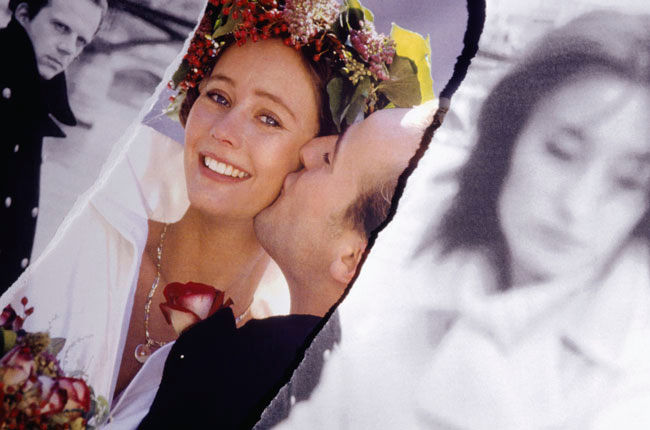Marriage is BETTER the SECOND time around, study shows
- Ken Ecott
- Jun 20, 2018
- 2 min read

Marriage the second time is better than the first, a new study shows.
And even co-habiting makes for a happier life than newly-wedded bliss. Couples living together after a failed marriage find their life satisfaction improves for eight years, while those who tie the knot for a second time see a decade of improvement.
But for first-timers, marriage does not provide "any first-year improvement in happiness" and then declines.
The long-term study of almost 3,000 British couples found that second time is best, with couples having more realistic expectations.
According to the Office for National Statistics one-in-five British couples are cohabiting, while only 60,000 couples choose to wed for a second time.
Members of the British Household Panel Survey were interviewed over 12 years about life satisfaction and happiness.
They were interviewed annually on a scale of one-to-seven how their circumstances compared to others.
And in a separate questionnaire participants were asked from one-to-ten to describe their well-being.
The study looked at 1,436 never-married and 1,539 previously married individuals.
It found: "For previously married individuals, a new partnership, cohabiting or married, provides a considerable increase in both happiness and life satisfaction over the first year.

"However, happiness and satisfaction tend to drop over subsequent years. Looking at the happiness of previously married individuals, the estimates indicate that the benefit of a new partnership holds for about 5 years.
A new partnership improves the life satisfaction of this group for about 8 years if cohabiting and about 10 years if re-marrying.
"For never-married individuals, entering cohabitation or marriage does not provide any first-year improvement in happiness, and happiness tends to drop at a slow rate over subsequent years.
"With this group, entering cohabitation is associated with a minor and non-significant increase in life satisfaction that drops below pre-partnered level 2 years later."
But for the newlywed first timer it is better than living together: "Marriage provides some additional benefits for the life satisfaction of previously never- married compared to cohabiting individuals.
"Entering a marriage with no previous, lasting cohabitation is associated with an increase in life satisfaction over the first year. "The higher satisfaction of this group drops to pre-partnered level 3 years after marrying and below this over subsequent years."
The study in the Journal of Happiness Studies, led by Professor Morten Blekesaune at Agder University, Norway, concluded: "Both married and cohabiting individuals were more satisfied and happier than those living as singles.
"Further, married individuals were more satisfied than cohabiting individuals, a difference typically known as the cohabitation gap.
"Cohabiting and married individuals reported similar levels of happiness, however.
"Previously married individuals experience a stronger increase in both happiness and satisfaction when entering a new partnership than never-married individuals.
"One possible explanation is that previously married individuals have or face different expectations than never-married individuals."
This may explain why couples in second marriages are 'less likely to get divorced' because they benefit from experience of the first.
An earlier study by the Marriage Foundation said that while 45 per cent of first marriages end in divorce, only 31 per cent of second marriages will ended in failure.
They found that couples benefit from age and experience, and are more ready to commit.


Comments